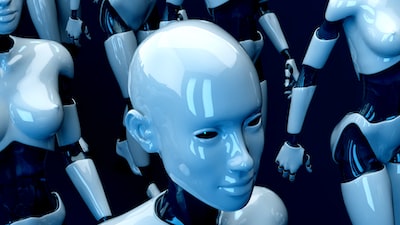AI and the Essence of Interpersonal Bonds: Bridging Technology and Humanity

AI and the Essence of Interpersonal Bonds, In the intricate dance of human connections, we often find ourselves seeking a rhythm, a synchronicity, a deeper understanding. Historically, our quest for better interpersonal relationships has been guided by introspection, cultural norms, and human wisdom.
Yet, as the digital age unfolds, a new player emerges in this stage of human connection—Artificial Intelligence (AI). At first glance, AI might appear as an unlikely guide in the realm of raw human emotions.
However, when approached philosophically and practically, it offers intriguing possibilities to enhance and understand the tapestry of our relationships.
Understanding vs. Knowing: The AI Paradox
At its core, AI operates on data. It knows rather than understands. It’s crucial to discern this distinction. While AI can provide insights, predict behaviors, and offer suggestions based on vast amounts of data, it doesn’t “understand” emotions in the way humans do.
Yet, this very objectivity, this lack of emotional clouding, might be its strength. By standing outside the tempest of human emotions, AI can offer a unique perspective.

The Practical Magic of Personal AI Assistants
Emotional State Insights from social media:
We live in an era where our digital footprints, intentionally or not, often reflect our emotional landscapes. Personal AI assistants can analyze these footprints, especially on social media, to gauge the emotional states of our contacts. Such insights can guide us to reach out at the right moments—be it a time of joy, sorrow, or simply when someone needs to talk.
Guided Communication:
Communication, the cornerstone of any relationship, often becomes a maze of misinterpretations. AI can suggest effective communication strategies by analyzing past interactions, tone, and content. It’s not about scripting human interaction but rather offering a nudge toward clarity and empathy.
The Philosophical Interlude: What AI Teaches Us About Being Human
Reflection and Introspection:
The very fact that we can design a system to predict and interpret human emotion forces us to reflect on our nature. What does it mean to understand someone? How do patterns emerge in our behaviors? AI doesn’t just provide answers; it prompts profound questions.
Empathy through Objectivity:
While human relationships thrive on empathy, our judgments can sometimes be clouded by our emotions. AI, with its objective insights, reminds us of the value of stepping back, to viewing situations without biases—ironically, making our reactions more empathetic.
The Balance of Dependency:
As with any tool, the key is to use AI as an aid, not a crutch. It should enhance our interpersonal relationships, not define them. This delicate balance prompts a philosophical exploration of dependency, agency, and human will.
Conclusion
In the ever-evolving dance of human connections, AI emerges not as a replacement but as a partner, guiding, suggesting, and illuminating paths previously unseen. Its blend of practical insights with philosophical implications offers a richer, more nuanced exploration of interpersonal relationships.
In this fusion of technology and humanity, we’re reminded that sometimes, to understand the heart, we might need the mind’s clarity. AI, in its unique way, offers a bridge between the two, leading us toward deeper, more meaningful connections.




